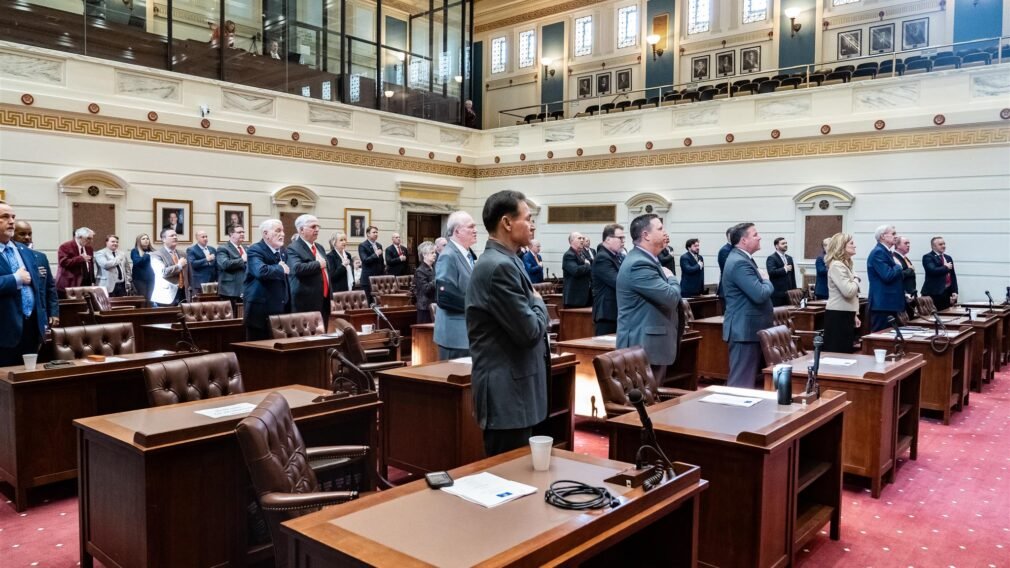Oklahoma’s Sports Betting Bills Move Forward, But Key Hurdles Remain
Oklahoma lawmakers continue pushing to legalize sports betting. Several bills have advanced in both the House and Senate, yet disagreements between tribal nations, state officials, and other stakeholders could derail progress.

Senate Bills Gain Momentum, But Negotiations Are Inevitable
The Senate Business and Insurance Committee approved three separate bills related to sports betting, signaling momentum toward legalization. However, ongoing negotiations will likely reshape these proposals before they reach a final vote.
SB 125 – Sen. Dave Rader’s bill allows tribal nations to offer sports betting if they update their gaming compacts. The bill proposes exclusive fees between 5% and 7%. It passed 9-2 and now moves to the Senate Appropriations Committee.
SB 164 – Introduced by Sen. Casey Murdock, this bill gives the Oklahoma Lottery Commission oversight of sports betting. It sets a 15% tax on adjusted gross revenue and requires a $500,000 initial licensing fee plus a $100,000 annual renewal fee. The bill narrowly passed 6-5 and moves forward.
SB 585 – Known as the “Thunder Bill,” this measure allows Oklahoma City Thunder to secure a sports betting license. It also ensures the state receives 10% of net gaming revenue, an estimated $20 million annually. The bill passed 8-2 and heads to the full Senate for discussion.
House Bills Offer an Alternative Approach
Meanwhile, the House of Representatives is considering two sports betting bills that focus on tribal exclusivity:
HB 1047 – Sponsored by Rep. Ken Luttrell, this bill gives tribes exclusive rights to negotiate a sports betting compact. The state would receive 10% of adjusted monthly gross revenue from sportsbooks.
HB 1101 – Designed as a backup plan, this bill would let voters decide through a constitutional amendment if HB 1047 fails. This approach bypasses the governor’s approval, making it a potential workaround to opposition.
Supporters of sports betting argue that Oklahoma is losing millions in potential tax revenue while neighboring states capitalize on legal wagering. Sen. Bill Coleman emphasized that allowing mobile and in-person sports betting could generate millions in new tax revenue while also creating jobs and boosting local economies. The estimated $20 million annually from SB 585 is a key selling point. However, some lawmakers remain cautious about the social risks tied to gambling expansion.
Governor Kevin Stitt remains the ultimate roadblock. He opposes giving tribes exclusive control over sports betting and has long pushed for a more competitive market.
His history of disputes with tribal leaders over gaming compacts suggests a difficult path forward unless both sides reach a compromise.
Recommended
